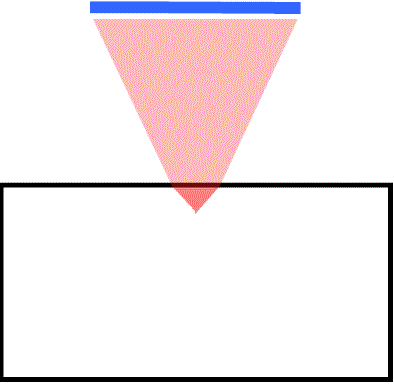Writing about Lost's first season, Alan N. Shapiro noted:
After the plane crash... Dr. Jack Shephard is instantaneously transported into a situation of proximity and solidarity with a motley collection of his struggling fellow human beings. It is a golden opportunity for deep bonds to form. Yet Jack's initial predicament of not being able to attend to his own wound while working frantically to save the lives of others is a brilliant metaphorical commentary on the present-day hyper-modern translation of Heidegger's "constant activity." In globalized media and corporate culture, Crash and Catastrophe are the only ways for interruptions of the continuous drone of organized and institutionalized mere busyness to take place.
Shapiro saw Lost in '04 as the "Crash Out of Globalization and into the World." Six years later the series has ended and revealed itself as globalization's "bardo state" (a term from the Tibetan Book of the Dead): parallel universes bleeding into parallel universes before ultimate rebirth as... what? Beyond the pure white light we don't know. After the initial hint that the series would take us "out of globalization" and into a world free of "organized busyness," it turned out to be the world we know in a high speed blender. A million cliff-hangers later, it became apparent that crash and catastrophe were not going to interrupt the continuous drone of our daily lives but would in fact be part of its fabric.
Critics may sneer but Lost ultimately shines with the same mind-warping, black hole sun radiation as Philip K. Dick's Ubik and Cronenberg's Videodrome. The same writers ho-humming that the show was turning into a standard good vs evil parable were caught short by the naked Buddhism of the final episode. Usually "it's all a dream" is a cheat, but it can also work. Dick's Ubik is no less compelling for learning that most of the characters are deceased, living on in cryo-sleep, and influenced by the stronger thought patterns of the adjacent dead as well as people communicating with them from another time continuum.
The character of Eloise Hawking could be Lost's Glen Runciter (a living person in Ubik), just as Jack is its Joe Chip (dead guy). She plays with elaborate charts in a special room, mingling the occult and quantum physics, to observe and communicate with the dead's preserved selves in the tesseract field (A. A. Attanasio's idea of the recoverable pattern of energy that survives the death of the individual, spreading out through space), somehow focused by the Island's pockets of electromagnetic energy. Meanwhile the dead act out the dramas of the bardo state, a continuous rehash of their lives in the fast paced, time-contracting world that we, by implication, still inhabit. In one of the final states (so the Book of the Dead has it), the deceased are consumed with visions of bodies intertwined in lovemaking, and in the final Lost episode "soulmates" come together. When they are "ready" (which serial murderer Ben Linus is not) they move on to the next state.
"Long live the New Flesh," says James Woods in Videodrome, before taking his own life. Cronenberg doesn't show us what happens next, either.
Update: I had the title of Shapiro's text wrong - fixed now - minor corrections have been made to the paragraph where I mentioned it.



